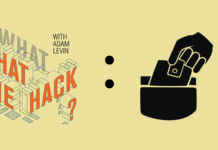

Now that Governor Mitt Romney has picked U.S. Rep. Paul Ryan to be his vice presidential running mate, there is little doubt that the budget will be a major issue in the 2012 campaign. While both parties will vigorously debate which path should be taken regarding taxes and spending, one area of little dispute will be the efficient collection and proper refunding of taxes. After all, refunds have their own kind of stimulus effect.
Obviously, no one minds getting a refund, but failure to receive a refund that is owed to you is painful. Worse yet, when it goes to a thief, which has been happening more and more of late, it is maddening.
That’s why I was excited to hear there is a bipartisan effort afoot in Congress to accomplish something of major import before the election. The Stopping Tax Offenders and Prosecuting (STOP) Identity Theft Act (HR 4362) was introduced by Rep. Lamar Smith (R-Texas), chairman of the House Judiciary Committee, and Rep. Debbie Wasserman Schultz (D-Fla.). It sailed through the House of Representatives. The goal: stop identity theft, particularly when it is employed to steal tax refunds.
The IRS is getting hoodwinked by identity thieves 1.5 million times a year. Using stolen identities, these criminals are filing fraudulent tax returns, reaping more than $5.2 billion every year in stolen taxpayer money. Treasury estimates that the IRS could issue $21 billion to identity thieves over the next five years. Place your pinkie to the side of your mouth and say, “Twenty-one BILLION dollars.” For those those of you who are more visual, that’s $21,000,000,000. Still need help? Consider the following:
- That’s enough money to fund NASA for a year, with $2 billion to spare.
- The IRS is losing enough money to maintain our nuclear stockpile for three years, or fight nuclear proliferation around the world for 10 years.
- The total “take” here is enough money to fund up to 20 years worth of loan guarantees for efficient, renewable energy projects.
- Enough money is flowing into those accounts to fund the Federal Highway Administration for more than 20 years.
- Taxpayers are being defrauded of enough money to fund the entire Food and Drug Administration for almost five years.
- This is enough cash to fund five and a half years’ worth of Homeland Security disaster preparedness grants to states and local communities.
If these stats weren’t enough to grab you, here’s something scarier: The IRS didn’t know it was happening. The long-held custom of allowing individuals to file their taxes starting in the middle of January even though employers are not required to report income until March 31 is to blame, in part. Scammers exploit that three-and-a-half month window to file tax returns in the name of identity theft victims.
Furthermore, according to the Treasury, some of the opportunity is being created by modern conveniences. As the IRS has become more efficient by eschewing paper refund checks for direct deposits, often in the form of debit cards, criminals have fewer hurdles to clear to cash in on the identities they steal.
Finally, the fact that multiple refunds can be deposited into a single account also eases things for identity thieves.
Obviously, the IRS needs to refine its practices. The Stopping Tax Offenders and Prosecuting (STOP) Identity Theft Act is aimed right at the scammers. The bill increases penalties for identity theft, and when committed in conjunction with tax fraud, creates a compound offense, increasing prison sentences even further.
The bill also expands the definition of “identity” beyond the traditional, flawed constraints like name, address and Social Security number. These days virtually anything — your location as you use the Internet, your email password, your Twitter and Facebook account names — can be used to steal your identity and with that, your tax return or anything else that can be had if you have the keys to an individual’s finances.
Broadening the definition of “means of identification” to include any name or number used to identify a person is a huge, wonderful step in the right direction. The fact that such a definition was included in the original version of the bill, without months of lobbying by identity theft and consumer experts, shows that some members of Congress are finally learning the hard truths about what identity theft is, how it’s perpetrated, and the harm it can cause. And now they finally comprehend that on a yearly basis identity thieves are stealing enough money to keep the military health system running for six months.
Does the STOP Identity Theft Act entirely fix the problem? While I’m an optimist, I’m not a Cubs fan — of course not. Identity theft is so pervasive, and it happens for so many reasons, that a narrow bill focused primarily on protecting the nation’s treasury will never be the kind of broad, all-encompassing law needed to tackle the problem. Prison sentences must be lengthened for all types of identity thieves, not just those who use stolen data to commit tax fraud.
The STOP Identity Theft Act is a good first step. It shows that at least members of Congress are willing to put consumers and privacy ahead of short-term political advantage.
These thieves are cyclically robbing the nation of 10 years’ worth of funding for federal weather satellites (that’s No. 7 — I knew I had one more in me), not to mention the consumer spending that isn’t happening that isn’t spurring production that isn’t creating jobs.
Maybe our legislative leaders have finally realized seriousness of the identity theft problem. That the STOP Act essentially sailed through the House, with neither side trying to politicize what is essentially a nonpartisan issue, demonstrates that Congress is still capable of doing its most important job: coming together to protect Americans from a clear and present danger.
This story originally appeared on Credit.com. Follow them at @creditexperts.









